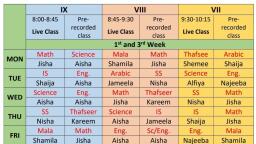Question 2 :
There are four prime numbers written in ascending order. The product of the first three is $385$ and that of the last three is $1001$. The last number is
Question 3 :
Mark the correct alternative of the following.<br>Which of the following is a prime number?<br>
Question 4 :
Which of the following statements are true?<br>If two numbers are co-prime, at least one of them must be prime number.<br>
Question 5 :
Consider the following statements:<br>If p is a prime such that $p + 2$ is also a prime, then<br>1. $p(p + 2) + 1$ is a perfect square.<br>2. $12$ is a divisor of $p + (p + 2)$ if $p > 3$.<br>Which of the above statements is/are correct?
Question 6 :
For what value of $n$ are $\displaystyle 2^{n}-$ 1 and $\displaystyle 2^{n}$ + 1 Prime ?
Question 7 :
The ratio of the least prime number to the least composite number is
Question 10 :
Which of the following is a pair of twin-prime number ?
Question 11 :
Mark the correct alternative of the following.<br>Which of the following numbers is a prime number?<br>
Question 13 :
The total number of prime numbers between $120$ and $140$ is
Question 14 :
Which one of the following is the largest prime number of three digits?
Question 17 :
State true(T) or false(F).<br>Odd numbers cannot be written as sum of primes.<br>
Question 18 :
If $P$ is a prime number such that $(P+2)$ is also a prime number then $P (P+2) + 1$ is always
Question 21 :
A student was asked to find the sum of all the prime numbers between $10$ and $40.$He found the sum as $180.$Which of the following statements is true?
Question 22 :
If a, b, c, d are prime number such that $abc=385$, $bcd=1001$ and $a<b<c<d$, then.
Question 24 :
State true(T) or false(F).<br>The product of primes cannot be a prime.<br>
Question 26 :
If $p$ is a prime number and $p$ divides $a^{2}$, then $p$ divides $a$, if $a$ is a ...............
Question 27 :
If $p$ and $q$ are prime numbers satisfying the condition $p^{2} - 2q^{2} = 1$, then the value of $p^{2} + 2q^{2}$ is
Question 28 :
<div>(i). Every prime number is odd.</div><div>(ii). The product of any two prime numbers is odd.</div><div><span>Which of the above statements(s) is/are correct? </span><br/></div>
Question 29 :
The number of prime numbers between $1 \ and \ 10$ is
Question 30 :
The number $4$ is the smallest positive integer that has exactly three factors: $1, 2$ and $4$. If $k$ is the smallest positive integer after $4$ to have exactly three factors, then find the sum of the three factors of $k$
Question 31 :
What is the sum of prime numbers between $90$ and $100$ is ?
Question 32 :
If x is a composite number which of the following is necessarily true?
Question 33 :
The number of prime factors in the expression $\displaystyle (6)^{4}\times (8)^{6}\times (10)^{8}\times (12)^{10}$ is
Question 35 :
Prove that one cannot arrange the number from 1 to 81 in a $\displaystyle 9\times 9$<b> </b>table such that for each $\displaystyle i, l\leq i\leq 9$ the product of the numbers in row i equals the product of the numbers in column i.
Question 37 :
Let $x$ and $y$ be positive integers such that $x$ is prime and $y $ is composite, Then,<br/>
Question 38 :
What is the product of the greatest prime number that is less than $50$ and the smallest prime number that is greater than $50$?
Question 41 :
The number of 10-digit numbers such that the product of any two consecutive digits in the numbers is prime number, is
Question 43 :
Consider the following statements:<br/>A. The sum of two prime numbers is a prime number. <br/>B. The product of two prime numbers is a prime number. <br/>Which of these statements is/are correct ?
Question 44 :
The sum of three consecutive even numbers is $198$. Which of the following will be the smallest number among them?<br/>
Question 45 :
Mark the correct alternative of the following.<br>The smallest number which is neither prime nor composite is?<br>





























